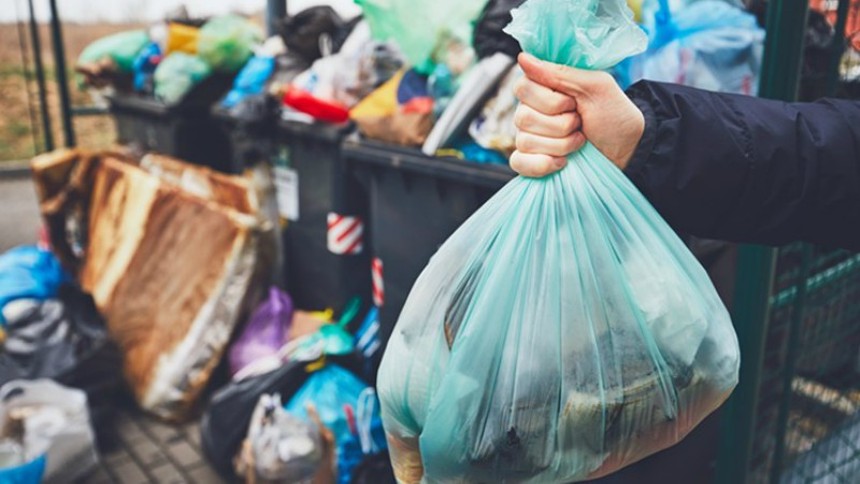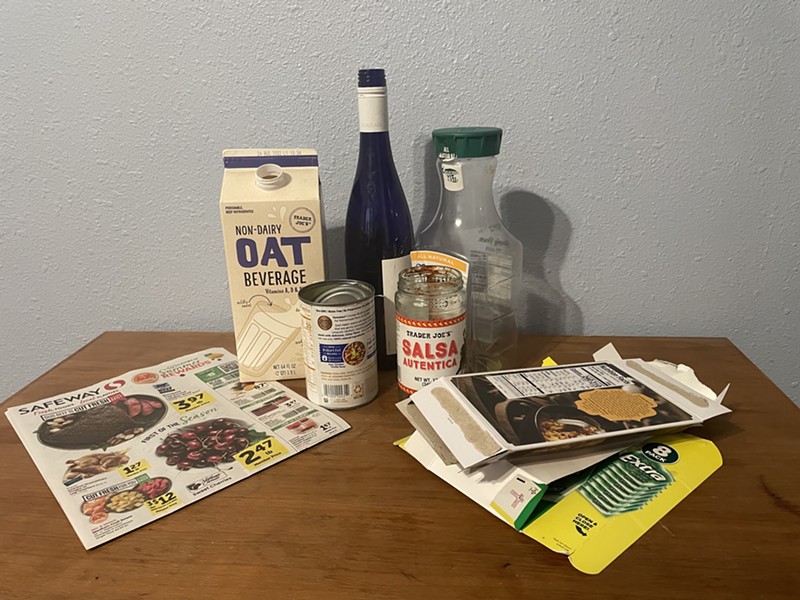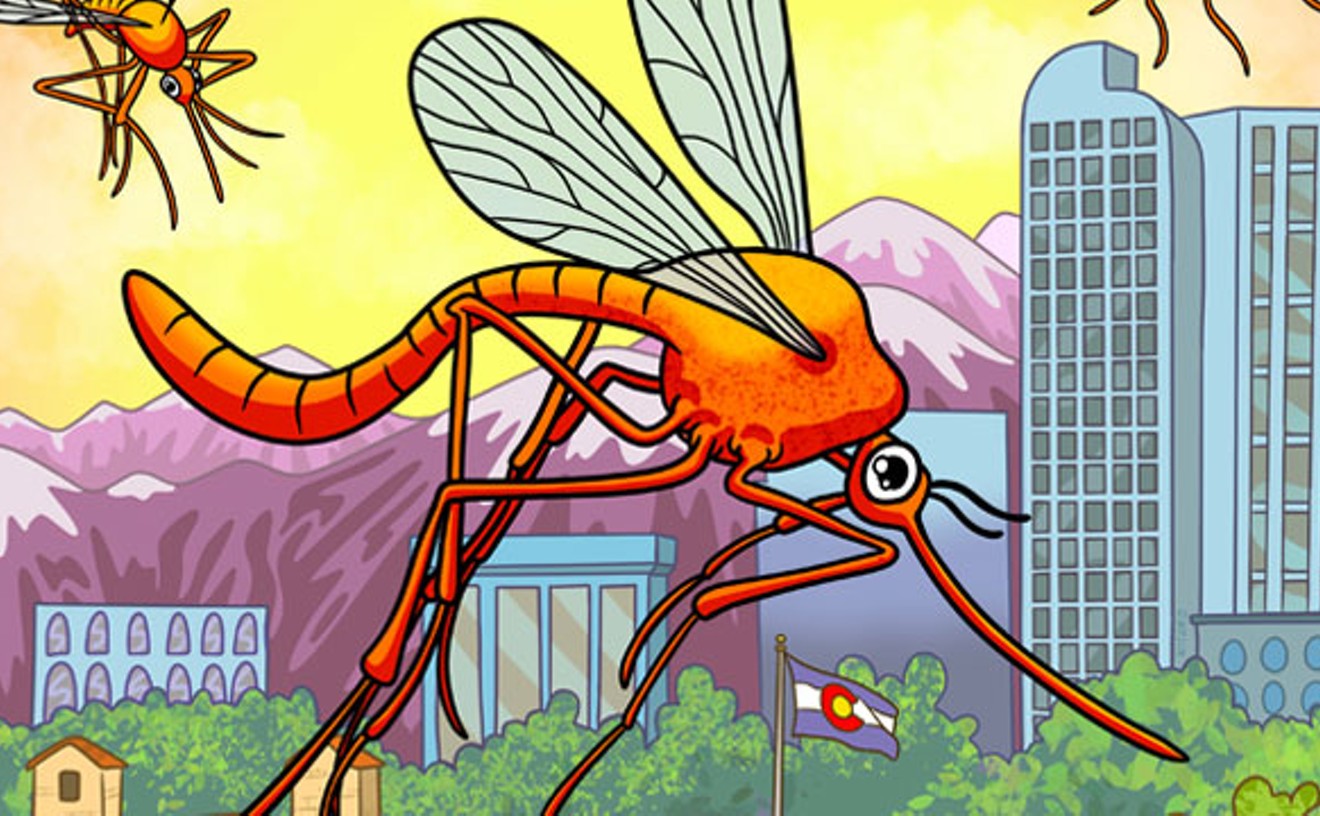Residents of single-family households will be able to choose the size of their trash can, and get weekly recycling pickup and compost bins as part of the deal. The 35-gallon size, which fits two to three tall kitchen bags, will run $9 a month; the 65-gallon, which fits four to five bags, will be $13 a month; and the 95-gallon, which fits seven to eight bags, will top out a $21 a month.
Weekly recycling for everyone will begin in January 2023, and composting will be rolled out throughout next year. Those who contaminate compost and recycling bins can be fined between $500 and $999.
Vanessa Lacayo, a marketing and communications specialist with the Department of Transportation and Infrastructure, says that the city will encourage people to make less waste by reusing or donating items. But for waste that's unavoidable, it will offer guidelines on what's actually trash and what can be recycled or composted, and it's allocated funds to educate people on how to use the program correctly.

Denver hopes to encourage recycling and composting by charging a fee for trash pickup.
Chalabala/iStock
DOTI will accept plastics 1 through 7 and glass bottles and cans, boxes, paper and containers of those materials. They don't have to be perfectly clean, but containers should be given a quick rinse to ensure that they aren’t too messy to be processed. Empty aerosol cans are also allowed, but only if they’re fully empty.
Glass bottles and containers can be recycled — but if they're broken, they must go in the trash.
You cannot recycle plastic bags, and don't bag your recyclables, either. “If plastic bags make it to the recycling processor, they get tangled in the sorting equipment and cause costly cleanup and delays,” Lacayo explains. Instead, check the city’s Recycling Directory to find drop-off locations for plastic bags.
Other items DOTI won't accept include scrap metal or loose cords, hoses or chains.
“We refer to these items as ‘tanglers,’” Lacayo says. “They get tangled, even when wrapped or bound, in rotating machinery and bring operations to a halt.” DOTI encourages people to work with an electronics recycler to handle all tanglers.
The department estimates that nearly half of what Denver residents currently throw away is compostable. Food scraps, yard debris and non-recyclable paper products such as paper towels and napkins can all be composted. Food scraps include everything from spoiled or moldy vegetables to bones; basically, if at one point you could have eaten it, you can compost it — though eating bones isn’t exactly recommended. See the full Denver composting guidelines here.
According to Lacayo, another common misconception is that you have to crush cans before they can be recycled. This is no longer true: Modern recycling sorting equipment is designed to sort uncrushed cans, and as a result, crushed cans are less likely to make it through the recycling process.
Generally, the lids of those cans can be recycled, too, as long as they're over two inches in diameter. If they're smaller, they need to go in the trash, because they won’t make it through the sorting system.
The same goes for K-Cups and small coffee creamers; they're too small to be recycled and need to be tossed. But toilet paper rolls are big enough to be recycled!
Coated paper products are one of the more complicated items. Denver's recycling system is set up to accept paper cups and cartons with coated paper on the outside because it sorts them from other materials and sends them to a facility that can process them. All other types of coated paper, including paper plates, parchment paper and tissue paper, need to go in the trash.
That means your Chipotle cups and oat-milk cartons (without plastic elements like straws and lids) can be recycled, but the cute paper plates and funky wrapping paper left from that canceled party are trash.
In case you still have questions, see DOTI’s full recycling program guidelines — which include a game that allows you to design your own park complete with aliens and dinosaurs in exchange for becoming a master recycler.
Happy sorting!











